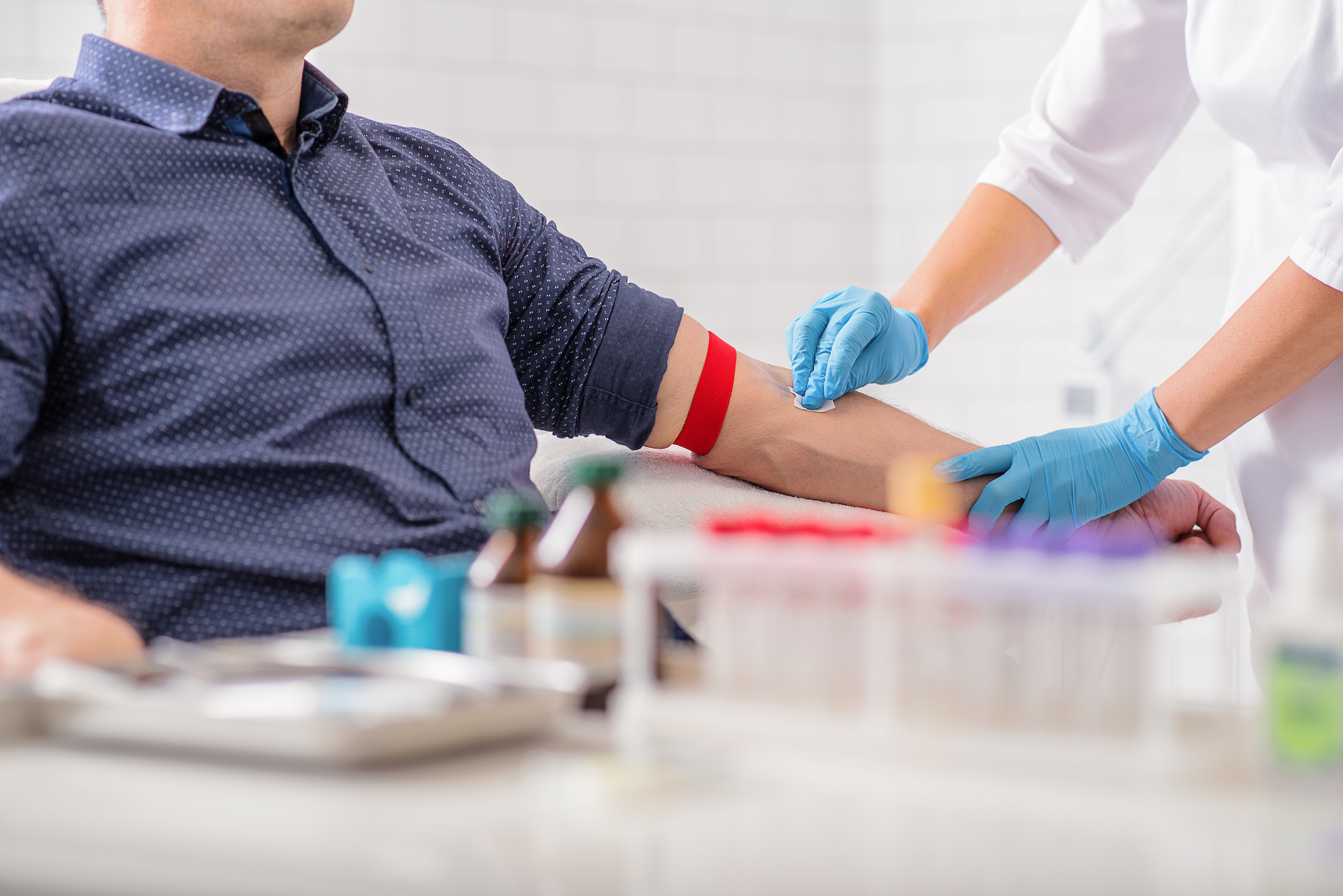There is a new diagnostic blood test on the market that can detect as many as 50 different types of cancer in a single blood draw. Of these 50 cancers, 45 of them (which are responsible for 71% of deaths) currently don’t offer any screening methods for detection.
This new test, named Galleri, is manufactured by Grail, Inc., a California-based manufacturer who also funded the recently released study on its efficacy. The study was headed by Dr. Eric Klein, Chairman of the Glickman Urological and Kidney Institute at the Cleveland Clinic. Their findings were published in the Annals of Oncology on June 25, 2021.
Galleri works by looking for the presence of cell-free DNA (cfDNA) in the blood, which is a telltale sign of the presence of cancer in the body. On the most recent study performed by Dr. Klein and his team, 2800 participants were enrolled who had already been diagnosed with cancer and 1250 without a cancer diagnosis were enrolled.
Findings on this most recent study showed Galleri correctly identified the presence of cancer in 51.5% of cases. The false positive rate was only 0.5%. The study also showed increasing sensitivity of the test with advancing stages of cancer. Stage 1 cancer had a sensitivity of 16.8%; that rate jumped to 40.4% with stage 2 cancer; 77% with stage 3 cancer; and 90.1% with stage 4 cancer.
A positive to the Galleri test is that it can be used to detect cancers that are otherwise difficult to detect with current diagnostic tools (e.g., liver cancer, esophageal cancer, and pancreatic cancer). In fact, the study shows an increased sensitivity in the detection of these hard to diagnose cancers than for those which currently have effective diagnostic screening tools. The test had a 33.7% sensitivity rate in detecting all-stage breast, bowel, cervical, and prostate cancers but a 65.6% sensitivity in detecting liver, esophageal, and pancreatic cancers.
Overall, Grail has enrolled more than 134,000 people in their clinical trials for Galleri. Researchers have concluded that the test is “accurate and useful enough to be deployed as a screening tool for individuals who are at high risk for cancer – including those age 50 and up – whether or not symptoms arise.” It is currently intended to be used a as a supplement versus a replacement for standard screening tests such as colonoscopy, mammography, and PSA).
Others in the medical and biotechnology community are more cautions, especially with regard to the low sensitivity rate for detection of stage 1 cancer. “Being able to detect a cancer that is already clinically apparent – which is how many of the cancer patients in this study were identified – is not what we want or need. We need a test that will detect cancer before it is obvious or, in the case of those cancers for which we have a screening, before a mammogram will see it, for example.” – Dr. Julie Gralow, Chief Medical Officer of the American Society of Clinical Oncology.
Grail is making an impact worldwide with its innovative research. Earlier this year they signed a partnership with Amgen, AstraZeneca, and Bristol Myers Squibb. They have also signed an agreement with the United Kingdom’s National Health Service to support their long-term initiative for early cancer diagnosis. This agreement with the UK NHS will make the Galleri test available to 140,000 people aged 50 and over without a suspected cancer diagnosis and 25,000 people age 40 and over who have suspected cancer. With the results of these participants in the test, the NHS hopes to expand access to Galleri to 1 million people by 2024 and 2025.
In the United States, Providence, the leading regional health system based in Renton, Washington with a footprint of 7 states including California, Oregon, and Washington, will be the first US health system to offer Galleri as a complement to their other screening and diagnostic tests. Providence will initially use the test in their California, Oregon, and Washington markets and then hopefully expand to the other states in their system. The test will also be available by the end of the year at the Mayo Clinic in Minnesota, Florida, and Arizona.
The Galleri test is currently only available on a prescription basis but can be requested from your physician. It is not currently covered by insurance plans so individuals would be responsible for the out-of-pocket cost of the test which is $949.
References:
https://www.medicinenet.com/script/main/art.asp?articlekey=260890

